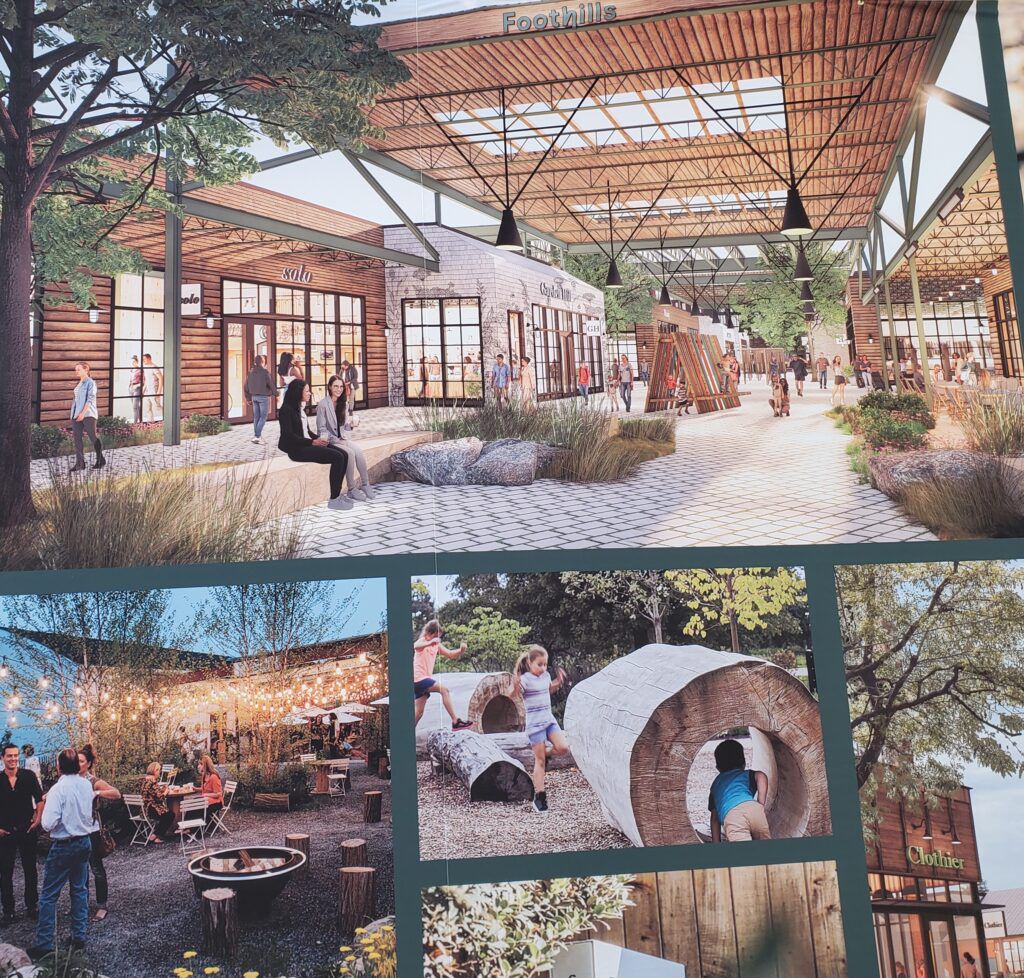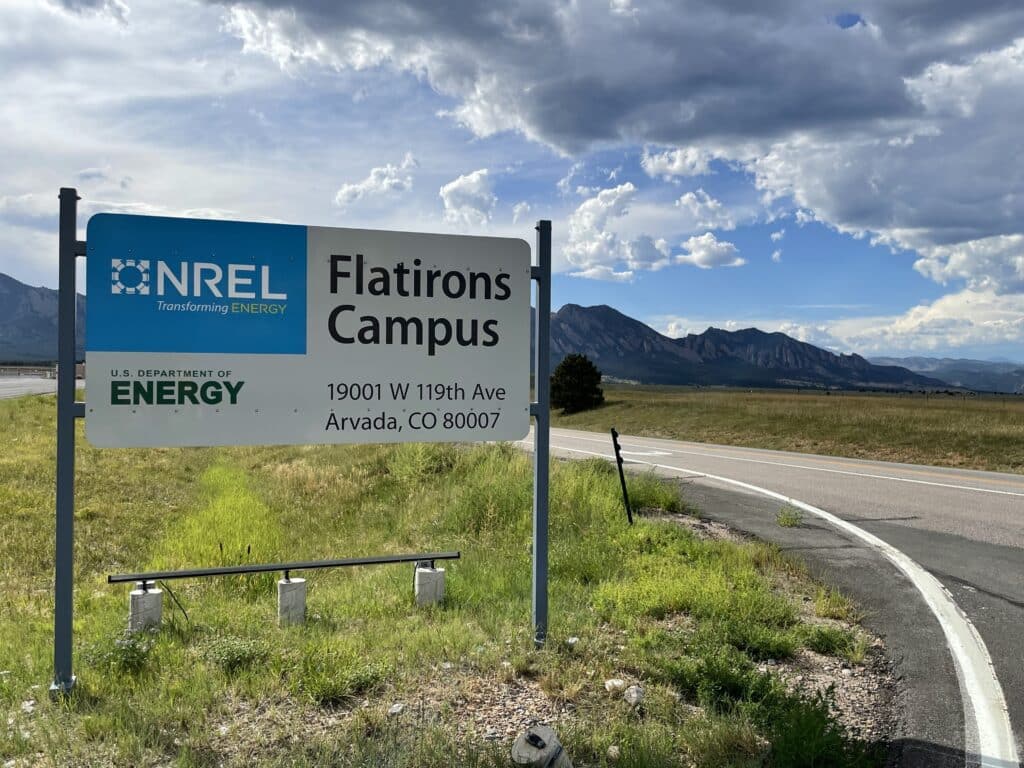Biotechnology boom
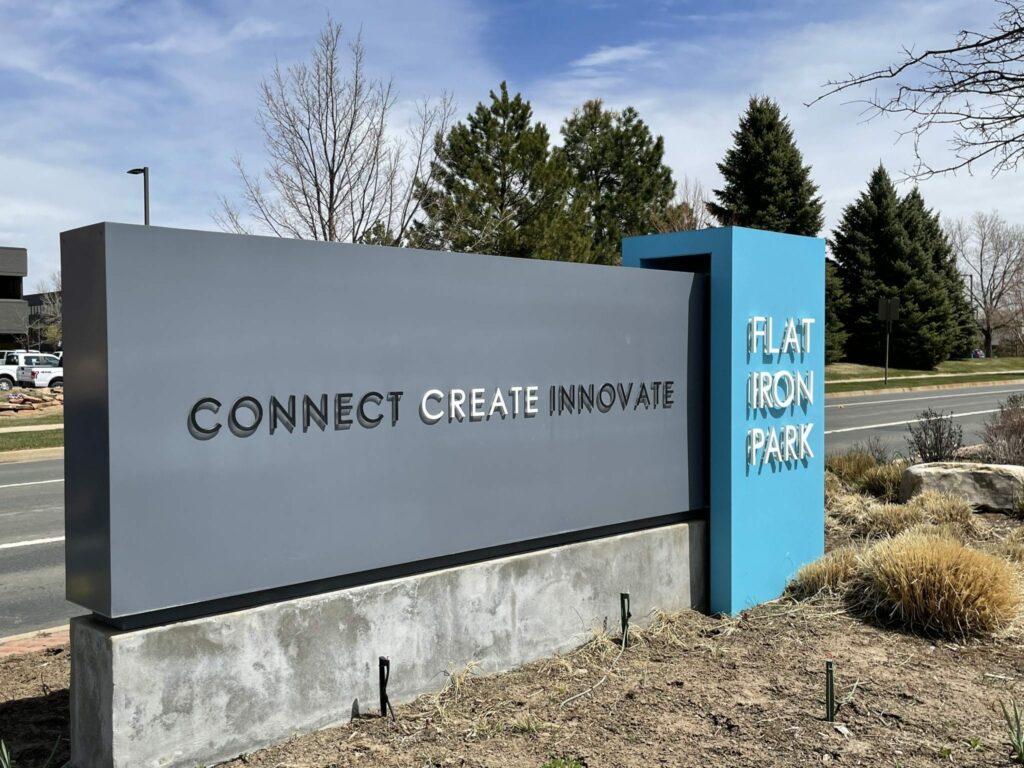
The COVID-19 pandemic — and its seemingly never-ending aftermath — has been a nightmare for commercial landlords of many different stripes, particularly those with significant holdings in retail and traditional office properties.
But in the Boulder Valley and Northern Colorado — especially along the U.S. Highway 36 corridor connecting Denver, Broomfield and Boulder — life-sciences and biotechnology companies with a thus-far unquenchable thirst for flex-industrial square footage have kept brokers and builders busy. And with 2023 upon us, there’s no sign of a slowdown on the horizon.
While office users who have largely remained in work-from-home or hybrid mode, leaving their workplaces underused, life-sciences companies are champing at the bit for additional space in the Boulder Valley, a market that’s rapidly becoming one of the industry’s leading regions.
“It’s been a very active second half of 2022,” BioMed Realty LLC president of West Coast markets Jon Bergschneider told BizWest in an interview this month.
In the Boulder Valley region, “you’ve got a great convergence of public and private industry, academic [institutions] like the University [of Colorado], venture capital” that combine to spur the growth of the local life-sciences industry, along with the real estate development necessary to support that growth, Bergschneider said. “It’s a multi-piston engine.”
All told, that biotech-related development accounts for “approximately 2.5 million to 3 million square feet of construction … underway or in the pipeline along the Boulder/Denver corridor,” according to a recent report from Boulder-based commercial real estate brokerage Dean Callan & Co. When you add proposed projects that have not been fully permitted, that square footage total is much higher.
“While office leasing has slowed dramatically, life science development is full steam ahead,” the report said. New development activity “will be a big boost to attracting more companies to our market and create even more demand for the [research and development] product Boulder provides.”
The biotech explosion in and around Boulder over the last half-decade or so comes as little surprise to local players who have long understood the region to be a technology powerhouse that punches well above its weight.
Erik Abrahamson, a senior vice president with CBRE, said during BizWest’s Boulder Valley Real Estate Conference held last month that “life science follows tech. We’ve got the tech.”
He said the University of Colorado is producing the “best in the world” graduates in bioscience. Smaller companies have been swallowed up by larger players, spreading the seeds of capital and talent to foster new generations of biotech startups.
Mike Ruhl, vice president of leasing for BioMed, compared the Boulder area to “to what Seattle was 10-15 years ago.”
BioMed, which this year bought a roughly 1 million-square-foot portfolio in Flatirons Park for $625 million — the largest real estate deal in Colorado history, “look[s] for highly educated markets, an influx of venture capital, and places with tech already here,” he said.
Despite the excitement, the biotech industry is not, of course, entirely without its recent hiccups.
For example, Inscripta Inc., a genomic-editing platform born out of the University of Colorado, is shuttering its Boulder research and development hub and headquarters in January, resulting in mass layoffs for employees at the site.
Meanwhile, Clovis Oncology Inc. (Nasdaq: CLVS) defaulted on a loan agreement this month and filed for Chapter 11 bankruptcy protection.
“At a high level, there have certainly been some macro issues that face everybody, no matter what geography or industry you’re in,” Bergschneider said. Those issues, unsurprisingly, relate mainly to interest rates, volatility in capital markets, supply-chain disruptions and a prolonged period of tightness in the labor market.
Macroeconomics haven’t slammed the brakes on local biotech developments, but they are likely to make things more expensive, both for builders and tenants.
“As [development costs] continue to rise, rents need to rise in lockstep in order for developments to pencil and for there to be economically acceptable returns for landlords,” Bergschneider said.
Still, “life-sciences on the whole, and Boulder on the whole, has held on really well,” he said. “We still see a tremendous amount of demand and great fundamentals.”
Observers across organizations remain quite bullish on the overall outlook for the local sector, with access to top talent often cited as a particularly attractive asset.
“For me, talent is everything. You grow through talent, and creating great technology is really all about talent,” Integrated DNA Technologies Inc. president Damaris Mills told BizWest this week. “We see Boulder as being this central U.S. hub for a lot of [biotechnology] talent — and increasingly so.”
Iowa-based IDT entered the local biotechnology sphere this month with the $48 million purchase of technology developed by and facilities formerly occupied by Boulder-born ArcherDX Inc. Archer, producer of genetic assays for cancer patients, was previously acquired in 2020 for $1.4 by California genetics-testing company Invitae Corp. (NYSE: NVTA), which is now facing significant financial turmoil.
“We’re excited about the site, and we’re really excited about the talent that’s here on the team and in the broader community,” Mills said.
Here are some highlights of life-sciences real estate projects planned, in progress or recently completed in that broader Boulder Valley and Northern Colorado community:
Boulder
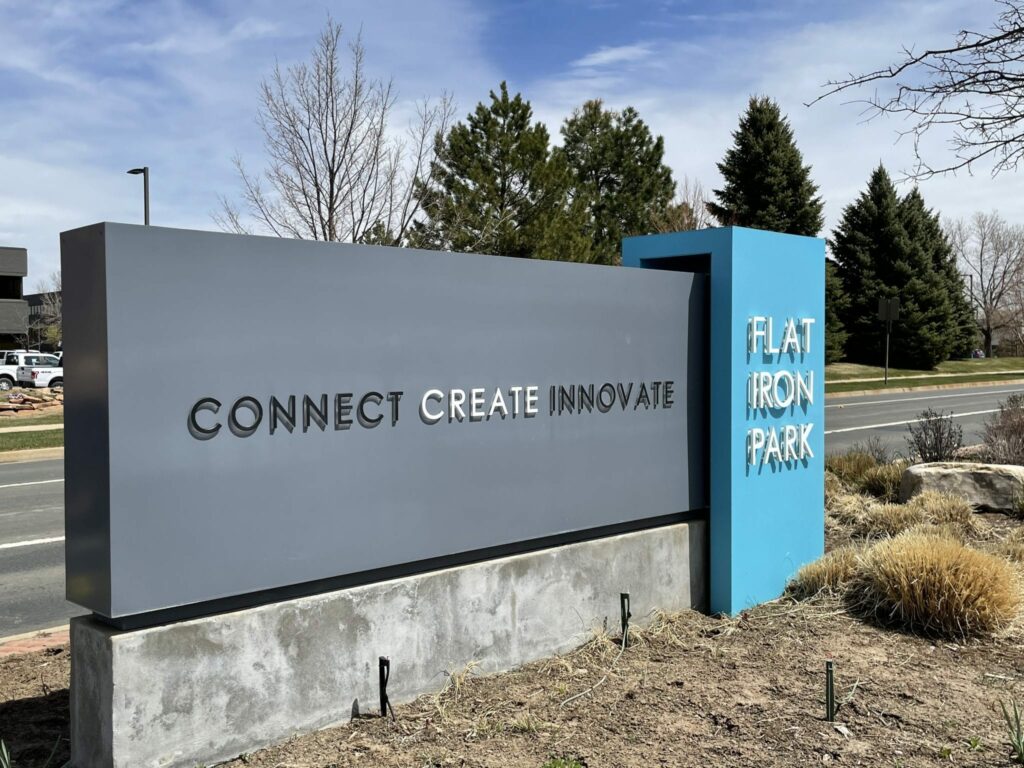
BioMed purchased Flatiron Park with the express purpose of improving its status as a regional hub for biotech R&D.
“At acquisition, about 25% of the park was life-sciences. Our goal is to convert that up to about 50% life-sciences,” Bergschneider said. “We’ve always envisioned a multi-faceted ownership model in which we’re appealing both to life-sciences and technology [tenants].”
The conversion process is underway and is expected to take a handful of years to complete.
Meanwhile on nearby Walnut Street, Conscience Bay Co. LLC is developing West Meadows, a 112,423-square-foot building that the company said represents a “significant opportunity for a cutting edge, two-story, science and technology development.”
Broomfield
Dallas-based investor and developer Mohr Capital LLC is dipping its first toe in the market with plans to build a four-building speculative campus on a vacant parcel next to the Oracle Corp. operation in Broomfield’s Interlocken business park.
“They’ve been looking to get into the market here for a while,” said WK Real Estate (Wright-Kingdom Inc.) broker Andrew Freeman, who, along with representatives from commercial brokerage Jones Lang LaSalle Inc. (NYSE:JLL), is marketing the project.
Mohr’s plan, Freeman told BizWest last month, is to build four, basically identical “life-science slash industrial-flex buildings” that will total nearly 400,000 square feet.
Nearby, another Dallas developer, Lincoln Property Co., is developing a large new office, research and development, and light-manufacturing campus in Interlocken with an eye toward biotech tenants.
The project, known as CoRE – Colorado Research Exchange, will be built at 235 Interlocken Blvd. and is planned to total about 450,000 square feet spread across four buildings that will range from about 16,000 square feet for the development’s amenities center to nearly 200,000 square feet for the largest office building.
Louisville
Redtail Ridge represents a major question mark for Louisville’s life-sciences future.
The project, which for years has proved difficult to push across the regulatory finish line, could eventually house a 2.6 million-square-foot, commercial-only development with a focus on biotechnology facilities on the roughly 400-acre, long-vacant, former Phillips 66 (NYSE: PSX) site off U.S. 36.
However, residents and Louisville officials have been thus far unwilling to grant the approvals necessary for Denver-based developer Brue Baukol Capital Partners LLC and partner Sterling Bay LLC to break ground.
Superior
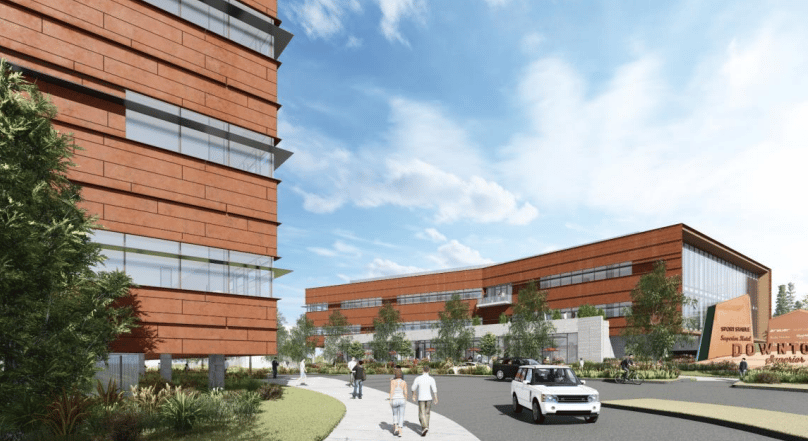
Another controversial life-sciences proposal in the eastern portion of Boulder County is the Coal Creek Innovation Campus in Superior, which could add more than 1,200 jobs, including many in the biotech sector.
The project, planned by Superior master builder RC (Ranch Capital) Superior LLC by San Diego health care real estate developer PMB LLC, calls for the construction of four buildings totaling more than 366,000 square feet.
Coal Creek was approved in September on a controversial split vote of Superior’s Board of Trustees. Residents cried foul, petitioned and sued, and last month the board repealed its approval, leaving the project in development purgatory.
Lafayette
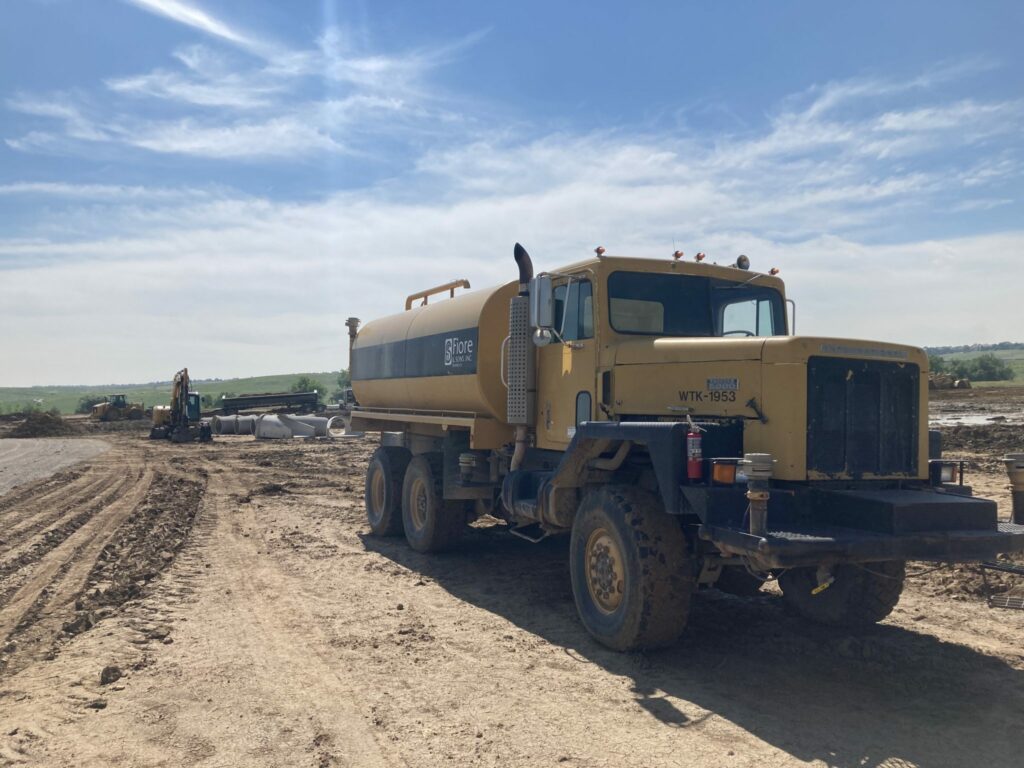
Redtail Ridge partner Sterling Bay is transforming a Lafayette Corporate Campus office building formerly leased to Ball Corp. (NYSE: BLL) into a speculative flex space geared toward biotechnology tenants.
The company, which bought the Campus Drive property as part of a $74.5 million portfolio acquisition deal in 2021 with developer Etkin Johnson Real Estate Partners, intends a roughly 50-50 split between office and laboratory uses for the roughly 52,000-square-foot space.
The lab space will be geared toward research and development uses rather than light manufacturing such as pharmaceutical or medical-device production.
Just next door to the Lafayette Corporate Campus, Medtronic Inc. is putting the finishing touches on its medical-device research and development hub.
The company will soon consolidate its local business into 400,000 square feet of new office and laboratory space spread across two, five-story buildings. Of that, 60,000 square feet will be dedicated to research and development, a 10,000-square-foot increase over Medtronic’s current R&D footprint in the region.
Frederick
One of the region’s most significant life-science projects isn’t in the Boulder Valley, but just a few miles to the north in Frederick.
It’s there that Agilent Technologies Inc. is planning a major expansion at its manufacturing hub.
The project, which state officials estimate could cost upward of $784 million, could could nearly double Agilent’s Colorado workforce and nearly quadruple its physical footprint in Frederick.
The Santa Clara, California-headquartered Agilent began developing its 130,000-square-foot manufacturing facility on 20 acres in the Eagle Business Park adjacent to Interstate 25 in 2016.
The company — which, according to its website, “provides laboratories worldwide with instruments, services, consumables, applications and expertise, enabling customers to gain the insights they seek” — also has existing operations in Boulder. All told, Agilent employs about 520 workers in Colorado, Colorado Office of Economic Development and International Trade documents show.
“Agilent is planning to expand its existing facility located at the northwest corner of Tipple Parkway [and] Eagle Boulevard,” according to a traffic analysis report provided to Frederick planners. “The expansion project is anticipated to add 310,000 square feet of manufacturing building, 61,000 square feet of associated office uses, 42,000 square feet of warehouse/central utility plant, 2,000 square feet of drum storage expansion and 10,000 square feet of tank farm.”
The expansion, which planning documents show is expected to be complete by the end of 2024, would “accommodate approximately 465 additional employees for the Agilent facility.”
Agilent, much like it did when the existing Frederick operation was built, has turned to public bodies to help subsidize the project. The company expects to receive more than $10 million in incentives for the Northern Colorado expansion.
Loveland
Last year, Beckman Coulter Life Sciences began expanding its presence in Loveland with the construction of a new $9 million office at Etkin Johnson Real Estate Partners’ Axis 25 development.
The 95,114-square-foot building, expected to allow the company to hire 85 more local workers, is scheduled for completion in 2024.
“We have been on a rapid growth journey in Loveland since 2018 when we started with nearly three dozen employees,” Beckman Coulter Life Sciences president Greg Milosevich said last year in a prepared statement. “Our strong business needs required us to ramp up quickly last year and we’re proud that despite the economic downturn in 2020, we were able to create more than 60 high-paying jobs in Loveland.”
Source: BizWest


